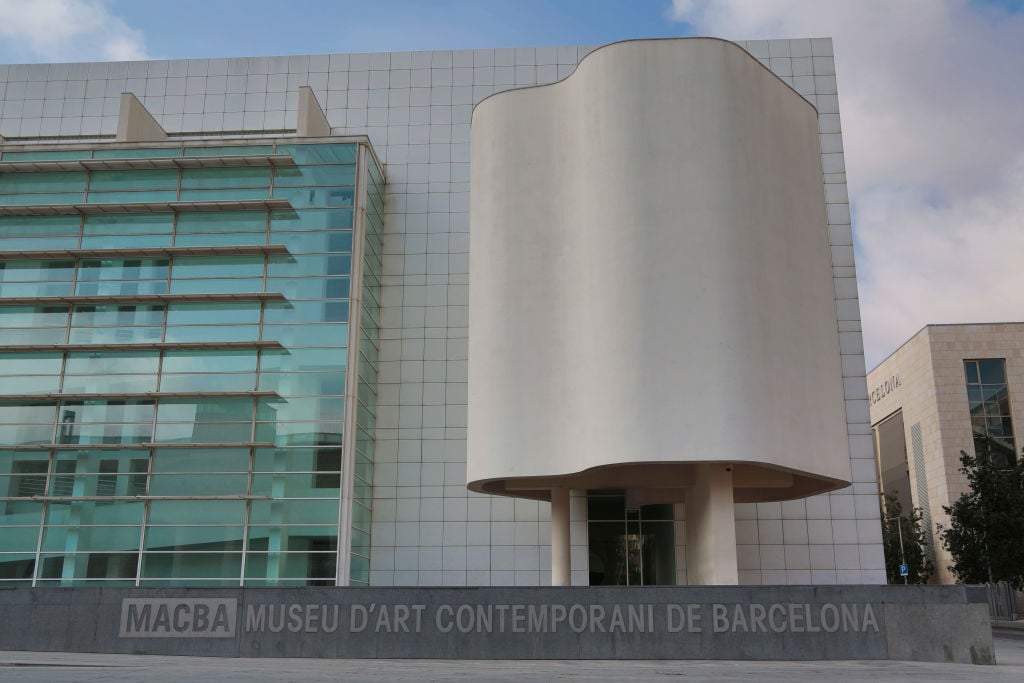
Barcelona’s Museum of Contemporary Art, MACBA, has been embroiled in a scandal after the museum unceremoniously fired two senior staff members, chief curator Tanya Barson and head of programming Pablo Martínez, as part of an organizational restructure.
Barson, well-respected former Tate curator, and Martínez, another leading curator, have accused MACBA’s management of trying to wrest control of the museum’s programming from its director and curatorial staff. They had both been working at the institution for five years.
The Spanish anthropologist Yayo Herrero and philosopher Marina Garcèz, who were heading up MACBA’s Independent Studies Program, have resigned in protest at the decision.
In a post shared on social media, Barson and Martínez said they were fired in an email from the museum’s manager, Josep María Carreté, on July 16, a day after the restructure was approved.
The new structure sees the museum’s director absorb the two senior curatorial positions, and puts their departments under one umbrella: a directorate of curation and research.
Barson argued that this would put more power in the hands of the museum’s administration, led by María Carreté, and makes the artistic director “a lesser and more symbolic role” by overseeing fewer senior staff.
The news came just as the announcement that Elvira Dyangani Ose, formerly a rising star director of London’s the Showroom, would become the museum’s next director. Dyangani Ose did not immediately respond to a request for comment.
The restructure has also created a new directorate of education and mediation, which Barson said makes it a part of visitor services rather than a content and research division. The changes “do not respond to any objective need and have as a main consequence the constitution of a museum management model in which neoliberal governance is placed about the design and development of content,” she wrote.
Spanish academics Herrero and Garcèz, who were working with Barson and Martínez on the museum’s independent education program, shared their resignation letters on twitter, writing: “Neither the focus on the new organization of MACBA, nor the dismantling of the PEI management team, nor the way in which the dismissals of Pablo Martínez and Tanya Barson have taken place, make us feel comfortable or allow us to carry out the tasks that we were assigned.”
Meanwhile, other members of the art world have shared their support for the curators on social media. Gallerist Kamel Mennour called it “shocking” and ex-Tate curator Mark Godfrey wrote that the decision was “outrageous.” The senior curator at the Dia Art Foundation, Donna de Salvo, called it a “classic bureaucratic maneuver with no thought or respect for the dedicated professionals for whom this is more than a job.”
In a statement, the museum said that the decision to dismiss Barson and Martínez came from the former director, Ferran Barenblit, and that the proposed restructure had been in the works since October. “No dismissal is welcome and we regret the written communications that have been sent as a last resort due to the impossibility of meeting with these people,” it said. “In no way does this imply that the administration has accumulated more power, in fact quite the opposite,” it said, adding that the change was handed down by the governing bodies “in order to adapt it to the post-COVID scenario” and to be “closer to its citizens.”
MACBA has been embroiled in scandals for several years. Former director Bartomeu Mari resigned in 2015 after he fired curators Valentin Roma and Paul B. Preciado and cancelled an exhibition when they refused to remove a controversial artwork. The pair later sued the museum and were awarded €50,000 each in damages.
Spanish outlet El País further reported that there had been tumult behind the scenes at the institution, where Barson was not always well liked. A former colleague complained to the outlet that she “forced us to hold meetings in English” and “never learned Spanish or Catalan.” Some critics were also unconvinced by her curation of a recent exhibition dedicated to Felix Gonzales Torres.
The Spanish ministry of culture, which partly approved the decision to fire the employees, did not respond to a request for comment.